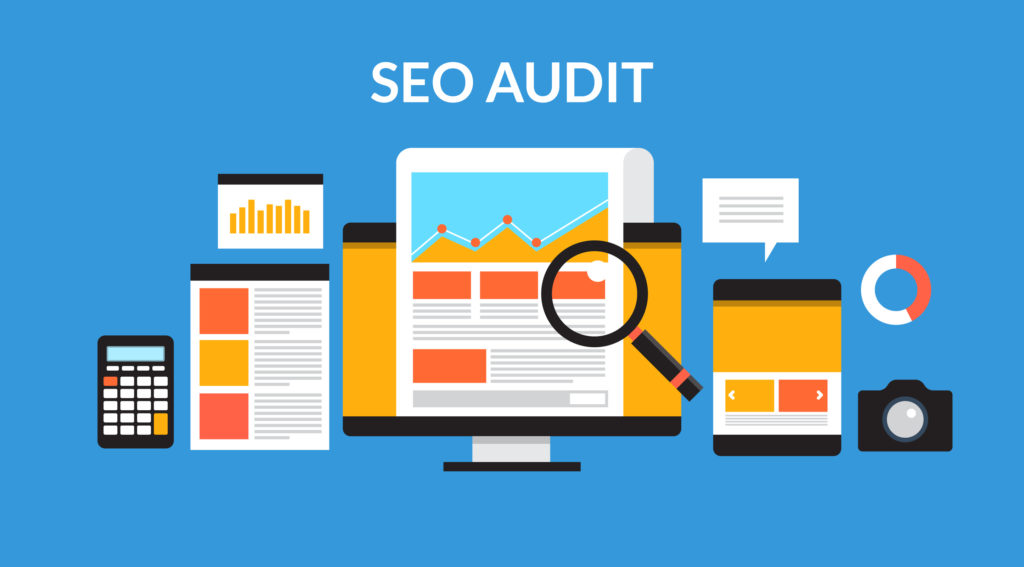In the ever-evolving digital age, staying ahead of the competition means using the right SEO Audit Tools. For businesses looking to improve their SEO strategies in the coming year, having access to the best audit tools is essential.
In this blog, we explore some of the top SEO audit tools you should consider trying in 2023. We also provide useful tips on how to get the most out of these tools and maximize your SEO performance. So whether you are a seasoned SEO veteran or new to the game, this blog is sure to provide invaluable insights.
List of 10 Best SEO Audit Tools
We take a look at some of the top SEO audit tools you should consider using in 2023. Whether you’re just getting started with SEO or looking to level up your current strategy, these tools will help you identify areas of improvement and take action. Take your website to the next level.
1. SEMrush
SEMrush is one of the most popular SEO audit tools on the market, and for good reason. The platform offers a comprehensive suite of SEO tools and features that allow you to audit and analyze your website. You can use the platform to monitor keyword performance, track competitor SEO strategies, and more.
2. SpyFU
SpyFU is another great SEO audit tool, offering a variety of features that allow you to analyze your competitors’ SEO strategies. With SpyFU, you can track keyword performance, evaluate backlinks, and more.
Also Read: Why is my website traffic going down all of a sudden?
3. Screaming Frog
Screaming Frog is a powerful SEO audit tool that helps you identify and fix technical issues on your site. The platform offers a variety of features to help you detect broken links, evaluate page titles and metadata, and more.
4. Ahrefs
Ahrefs is an all-in-one SEO audit tool that helps you with everything from keyword research to link building. The platform offers extensive features including keyword research, link analysis, competitor analysis and more.
5. Google Search Console
Google Search Console is a must-have for any website owner. This free tool from Google provides invaluable insights into your website’s performance on search engine results pages, including crawling errors, indexing issues, and more.
6. Seoptimer
SEOPtimer is a powerful SEO audit tool that can help you identify any potential issues with your website that could be affecting your search engine rankings. It provides a comprehensive overview of your website’s performance, including site speed, backlinks, keyword usage, and more.
The tool also offers detailed recommendations on how to improve your website’s visibility and ranking. It is easy to use and can be used by both experienced and novice SEO professionals. SEOPtimer also includes a free version with basic features, and a paid version with more advanced features.
With SEOPtimer, you can be sure that your website is performing its best and that you are doing everything you can to maximize your search engine rankings.
7. Majestic SEO
Majestic SEO is one of the most popular and widely used SEO audit tools on the market. The Majestic Standard Report is a great way to quickly get an overview of your website’s most important ranking factors. It provides invaluable insight into the top backlinks and anchor text associated with your website, which can help you identify areas for improvement and optimize your SEO strategy.
The tool also ranks the most important domains and subdomains, making it easy to spot potential competitors and opportunities. The Majestic SEO dashboard also offers an intuitive user interface and comprehensive reporting features, making it easy to track your progress and make informed decisions.
All in all, Majestic SEO is an invaluable audit tool for any website looking to improve their search engine optimization.
8. SEOsitecheckup
SEOsitecheckup is a comprehensive SEO audit tool that helps you troubleshoot technical issues on your website. The platform offers a variety of features including website speed analysis, keyword analysis and more.
9. SE Ranking
SE Ranking is a powerful SEO audit tool that helps you track keyword performance, analyze backlinks, and more. The platform offers a variety of features to help you identify areas of improvement and optimize your website for success.
10. XML-Sitemaps.com
XML-Sitemaps.com is an excellent SEO audit tool that can help webmasters detect and check the sitemaps of their websites. This tool provides valuable insights into the structure of the website, allowing webmasters to identify potential issues and improve their search engine rankings.
XML-Sitemaps.com not only checks the existing sitemaps, but also provides suggestions for improving them. This includes advice on how to optimize the URL structure, create meta tags and ensure that the website is crawlable by search engines.
Furthermore, the tool can also generate XML sitemaps for new websites, making it easier to get started. In short, XML-Sitemaps.com is an invaluable tool for webmasters looking to improve the visibility of their websites on search engines.
These are some of the best SEO audit tools you should consider using in 2023. There are many more on the market, so it’s important to do your research and find the tool that best suits your needs. With the right tools and strategy, you can ensure that your website is optimized for success in search engines.

